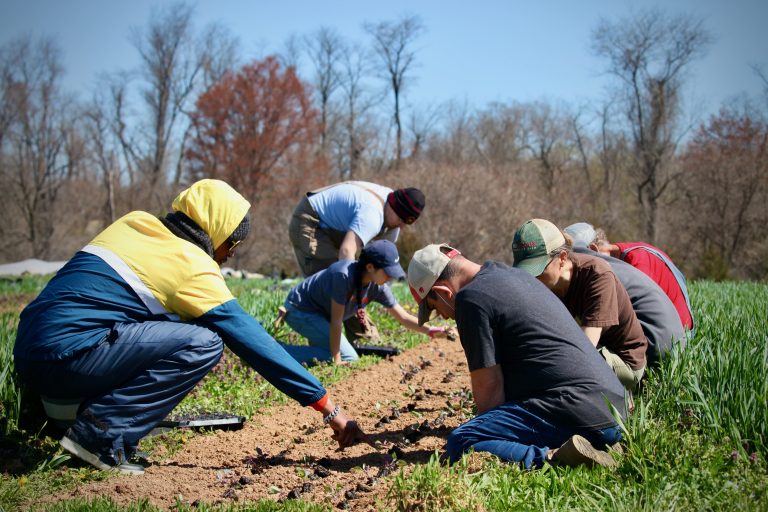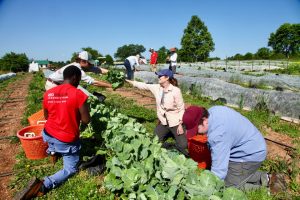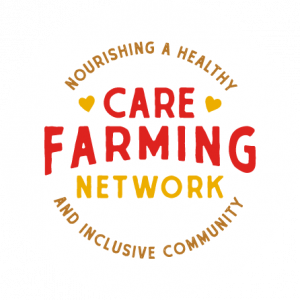For March’s blog, we reached out to our contact at Red Wiggler Care Farm, Rachel Armistead. Red Wiggler has been a member of Community Food Rescue since 2016 and has donated 22,732lbs (18,943 meals) since then. Read on to hear what Rachel shared with us.

“Red Wiggler Care Farm, a 501(c)(3) nonprofit here in Montgomery County, was founded in 1996 to create an inclusive community where all people can come together to work, learn, and grow. Our name, “Red Wiggler,” pays tribute to the hardworking worms that enrich the soil—just as we cultivate opportunities for growth and success for everyone in our community.
In 2024, we updated our name from Red Wiggler Community Farm to Red Wiggler Care Farm to reflect our commitment to the Care Farming movement, which uses therapeutic farming to foster health, well-being, and belonging. Through meaningful employment, sustainable agriculture, and education, we nourish our community with fresh, healthy food.
Red Wiggler’s programs fall into three pillars: Work, Learn, and Grow.
WORK: Red Wiggler’s Grower Program employs adults with developmental and intellectual disabilities. Growers are involved in all aspects of farming and distribution, including planting, harvesting, field and facilities maintenance, tool usage, and greenhouse management. We also run a seasonal apprentice program that provides opportunities for aspiring care farmers to learn through hands-on work experience.
LEARN: Education is at the core of all programming at Red Wiggler. Red Wiggler hosts youth and adults with and without developmental disabilities for tours, field trips, workshops, and consultations for farm-based educational and volunteer experiences. A few years ago, we also founded the Care Farming Network to raise awareness about care farming, build community, and increase the capacity of care farms. Through virtual and in-person gatherings, mentorship, consultations, and an annual conference, the CFN supports the 300 care farms within its growing national network.

GROW: Our traditional CSA customers receive weekly shares of certified organic produce, as well as newsletters and recipes that promote healthy eating and environmental stewardship. Through our Farm to Food Bank and Farm to Group Home programs 50% of our total vegetable yield is distributed to people in our community who have limited access to fresh produce.”
